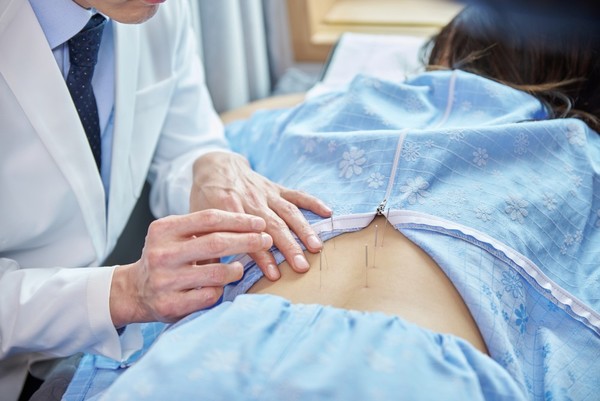The Ministry of Health and Welfare has set a policy to begin preparations this year for a pilot program that would allow oriental medicine doctors to serve as primary care physicians, with the goal of launching it by 2026. The plan is part of the government’s national agenda.
The ministry cited “frailty management” as a key strength that oriental medicine practitioners could bring toprimary care.

Jeong Young-hoon, director of Oriental Medicine Policy at the ministry, outlined the pilot program during a briefing with medical and pharmaceutical media on Wednesday.
The government finalized its national policy agenda at a cabinet meeting on Tuesday under the vision, “A Nation Where People Are the Masters, a Korea Where We All Are Happy.” Among its healthcare initiatives, the agenda includes “Promoting National Health through Primary Care-Based Health and Care,” which calls for “Establishing a Pilot Program for Oriental Medicine Primary Care Physicians.”
“The pledge to create oriental medicine primary care physicians was included in the last presidential campaign. During integrated care, oriental doctors’ home visits drew strong responses from older adults. While Western medicine has many specialized fields, oriental medicine offers procedures such as acupuncture that were well received by seniors,” Jeong said.
He added, “Oriental doctors as primary care physicians differ from Western medicine only in treatment methods like acupuncture and medication use, not in the system itself. Since this initiative is part of the national agenda, we must begin the pilot project. However, to use national health insurance funds, the plan requires deliberation by the Health Insurance Policy Deliberation Committee.”
The ministry aims to complete planning for the project by the first half of 2026, undergo committee review, and launch the pilot within that year. However, Jeong said the utility and necessity of the program must be reviewed given the government’s current focus on integrated and home-based care.
On the budget, he noted, “It depends on how the pilot is designed. We could limit the number of visits or restrict target areas. But because two pilot projects cannot run simultaneously, participants in this program likely cannot receive herbal medicine reimbursement, given the existing herbal medicine pilot.”
Jeong added that some local governments already support oriental medicine prescriptions through their budgets, and similar approaches could be considered for the new project.
He identified frailty management as the key area where oriental medicine could contribute. “In a super-aged society, even slightly delaying the decline of physical functions in the elderly is extremely important. Oriental medicine can play a role in preventing frailty and maintaining physical ability,” he said.
While expressing hope that oriental medicine primary care physicians could collaborate with Western medicine and offer patients more choices, Jeong acknowledged challenges. “Hospitals already have experience with Western-oriental medicine collaboration. We will explore ways to apply that experience in the primary care physician program,” he said.
Related articles
- Oriental medicine practitioners demand right to perform tattoos
- Dermatologists warn non-specialists distort field as cosmetic skin care, risking patient safety
- Rising side effects reported from Korean traditional herbal diet medicines
- Oriental medicine public health doctors demand authority to give vaccinations
- Top court to decide on oriental medicine practitioners’ access rights to Covid-19 info system
- [Caring the Korean Way] Sambok and samgyetang: beating the heat with tradition
- ‘Even snacks have labels, but herbal medicine doesn’t,’ lawmaker says

